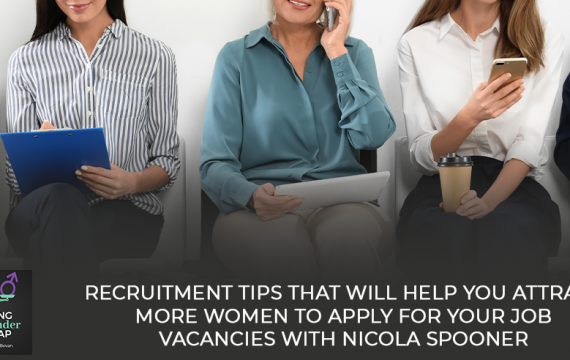There has been a shift in organizations where the value of diversity in the workforce is now recognized. But how do we also shift our recruitment strategies to attract more women to apply for job vacancies, especially in male-dominated industries? In this episode, Sherry Bevan sits down with Nicola Spooner of Nicola Spooner Consulting to give recruiters tips on how to achieve just that. An expert in project management recruitment, Nicola has valuable insights on mitigating gender inequalities through your recruitment processes. Tune in and learn how these can help you drive your business forward!
—
Listen to the podcast here
Recruitment Tips That Will Help You Attract More Women To Apply For Your Job Vacancies With Nicola Spooner
Thank you so much for joining me. I’d love for you to come back next episode and to make that even easier, you just need to subscribe to the show on your favorite podcast player. Let’s get into the show. In this episode we’re going to explore how to attract more women to apply for your job vacancies so that you start to close that gender pay gap. I’m delighted to be talking to Nicola Spooner of Nicola Spooner Consulting. She is an expert in project management recruitment and we’re going to be discussing how you can attract more women to apply for your job vacancies. Welcome, Nicola. Thank you so much for joining me.
Sherry, thanks for having me.
To set the scene, it might be helpful if you could just explain to us a bit more about what you do and that will set the scene for people and set the context of the discussions we’re having.
When it’s more recruitment business, we are focused on project management recruitment. What that generally means is we have a very male-dominated industry that we work in. Not only that but a lot of those projects are technology-related projects. That adds another dimension of gender inequality in terms of people that work in that space. I’ve been recruiting for many years and I’ve worked in lots of different areas. I did spend quite a long time focusing on HR recruitment, which was very female-focused. I’ve seen both sides of the gender side of that.
You’ve got loads of recruitment experience. One thing I noticed, recruiters and Talent Acquisition Managers, they’re often bemoaning the lack of women applying for roles because their company is asking them to provide a diverse shortlist. Yet, when I work one-to-one with female talent, who’s got the experience, the skills, they talk about the lack of opportunities available. It seems to me there’s a big disconnect between the recruiters and the female talent. I’m just wondering, is this something you’ve noticed as well?
Businesses as a whole, both recruiters and Hiring Managers have shifted away from any discrimination against women to a general positivity about wanting to attract women into their businesses. They can see the benefits of that diverse way of thinking and diverse approach to project management. You’re right. there is a bit of a disconnect because there are lots of businesses wanting to attract women into project management or technology project management specifically but then they don’t seem to be as many opportunities out there for women.
The real disconnect is around when women are looking for work, how they perceive those job adverts. There are hundreds of jobs adverts out there for project managers in a range of different industries. I feel that sometimes they’re not necessarily written in a way to attract the market that they’re looking to target.
That makes perfect sense. When you say they’re not written in a way to attract that target market, what could recruiters do to make sure those job ads are appealing to the female talent?

There are two things about it. First of all is the job ad itself. Traditionally, they’ve been a copy and paste of a job description because it’s quick, easy and it just gets it out there. There’s also a lot of adverts with a long list of bullet points of what criteria somebody needs to meet. That’s quite an old-fashioned way of attracting people to businesses.
Essentially, this is a sales document and it should be speaking to the target audience and it should be trying to attract people to that opportunity within that company, rather than having a list of a certain number of years experience, you must’ve worked with this technology or managed a team of X number of people. All of those criteria can put people off especially women who feel that they need to have achieved everything on the job description to want to apply. It’s a different approach that they have to job seeking. If companies look at that as a sales document to start with, that’s automatically going to attract more people to them, to speaking to the people that they want to attract.
The second point is around the language that they use. This is where it gets interesting because men and women are attracted to different words. When I first started in recruitment many years ago, we would look for people and target people, using words like assertive, dynamic, driven, confident and all of those strong words to try and find the people that we were looking for roles. What I’ve realized more is that those words do appeal to male applicants and put female applicants off. By changing the language that you use can open up those adverts to speak to women.
Interestingly, I did a bit of work on this for a Senior Manager for a project delivery team and I wasn’t finding any female applicants applying. It’s the more senior you go up and project management, the fewer women there are because there hasn’t been open to that for quite a while. What I found was by changing the language I used on the advert, very quickly, there were many more female applicants applying. I was using words like collaborative, honest, supportive, inclusive and trusting.
It attracted good-quality female applicants, which made a huge difference to that shortlist. The shortlist was much more diverse going forward. I’m one of those applicants who got the job and started and is doing a fantastic job there. Those words just appealed more to people or to females. Interestingly, it doesn’t seem to put male applicants off.
That was what I was going to ask. You’ve ended up with a fantastic diverse shortlist. My question in my head, as you were talking is “What happens to the male candidates? Does it put them off,” but you’re saying it doesn’t?
By changing the language that you use, you can open up your job adverts to speak to women.
I did a poll on LinkedIn. I put four words out there to say, “Which one would appeal to you most when you are looking for a job.” I used collaborative, honest, self-sufficient and driven. Two of them were collaborative and honest, and I thought what would happen was women would say that and the men would say self-sufficient and driven. That’s not the outcome that I got. Significantly, more people went for collaborative and honest. Of those, they were 50/ 50 men and women split. When I looked at self-sufficient and driven, there were a lot fewer people that were attracted by those words and of those many more women.
I’m just wondering then, when you found that you got this diverse shortlist of candidates, which is fantastic, did you attract a different type of male project manager? Could you put your finger on something being different about those or it didn’t put men off so you still got the same quality of candidate to apply?
The quality of the candidate was really good. I probably did have a different style of candidates apply. The role itself was very much a man management role looking to coach, develop and mentor people. All of those words very much suited the style of person that would fit well in that role. It did attract a different type of candidate that I would normally purchase, a senior manager role within project management. That’s what we needed someone to be collaborative, empathetic and supportive of their team. By speaking to the people that you’re trying to attract, the hope is that you would attract better-aligned people to your role.
It seems to make great sense what you’re describing. You’re making sure that job ad is a sales document so that you’re selling the job and presumably selling the organization as well. I would just like to come back to the other question that you talked about. We talked about the language so words like collaborative, empathic are more likely to appeal to women. You mentioned as well about having that long list of criteria. Talk to me a bit more about that and how that influences the candidates.
It’s like a checklist. If I sent on a job description chances are, they’ll come back and say, “It looks great, Nicola but I haven’t done points 18, 19 and 20. I’m not sure I’m right for the role.” People want to feel that they can do the job but women approach that in a slightly different way to men. Most of the female applicants that I speak to like to think that they could go in on day one, be competent and capable of doing everything on that criteria list.
Whereas, the male applicants are happy, “I’ll give it a go and I’m sure I’ll be fine.” It’s because of that, if you do want to attract more female applicants and we’re talking now about shortlist, we’re not talking heavily about being the right person for the role but if they’re not applying in the first place and you don’t even get them in the mix to consider them, a list of criteria is just going to put people off.
I always think it’s good to imagine, you’re talking to somebody over a glass of wine or a coffee and telling them what that job is as you’re talking to a person. If you approach a job a little bit more like that then people can imagine themselves in the role a bit more rather than checking off a list of criteria, which quite honestly not all of it is going to be essential to deliver that role in a good way.

I sometimes see on job ads some organizations will have essential and then desirable criteria. I know when I work with women on a one-to-one basis they’ll read these twenty different criteria for the role. They’ll then say to me, “I can’t apply for this job. It’s my dream job but I can’t apply because I haven’t got any experience of ABC and it’s difficult.” Does that apply equally whether you’re using essential and desirable criteria?
In my mind, you don’t want to be discounting people at this stage. As a recruiter, there are always people that will apply that don’t have the necessary experience with skills to deliver that role. I’m huge on transferable skills and giving opportunities for people in looking at the potential in people. Ultimately, they need to have some core ability to deliver roles, desirable or essential, the list just discounts people and good example is a global experience.
I do a lot of work with law firms and they’re implementing global technologies. A lot of people wouldn’t apply for a role if they didn’t have global experience. Now all the hiring managers that I would talk to would say, “It doesn’t matter about the global experience. We’ve got people on the ground and all of our regions that can do X, Y and Z. All they need to do is understand that’d be an added complexity to that piece of technology being delivered.” It’s on the job ad and job description as an essential. It’s putting people off when it’s just becoming an unnecessary blocker.
That’s an interesting one because having worked in a law firm previously myself, it wouldn’t have occurred to me that I had global experience. We’re an international firm, so we had offices all over the place and any rollout that we did or any project that we were managing, inevitably, we were doing it across multiple offices and countries. Are there other criteria that get put on the job ad because it’s needed but not really essential like the global experience?
Legal experience is one that I come up with a lot. One of my favorite things to do is challenge hiring managers on why and look at transferable industries and experiences that can come to that. Several years of experience is another one. They must have between 3 to 5 years experience. That might fit into their brackets within their salary bandings or team structure. There’s no reason why someone with 6 or 7-years’ experience or more couldn’t do that role if they would be happy to.
All of these things can add up to a very quick, “That role is not for me,” but it could be a really good opportunity. Rather than trying to put off applying for that role so you just get people that take your perfect criteria list, why not open it up and tell people why it’s such a great company to work for? What they will get out of coming to work there? What opportunities are available for career progression? You’re talking to people who will then get excited about that opportunity and it could be the right person for the role. Their lists of criteria do put people up and stop people from applying.
I suppose it’s a bit like trying to fit a square peg into a round hole that you try and squeeze yourself in. If you think that you’re not going to fit then it just puts you off.
You can’t just keep throwing salary at roles to attract people. There has to be more about it than that.
It absolutely does and everyone does. People want more diverse teams. They want diverse ways of thinking in their teams. Project management in technologies is quite a male-dominated industry. There are some good females coming up through the ranks. We want to encourage them to go for these more senior roles and to push themselves. On the flip side, as much as all the companies that can do around how they change the way they speak and attract people, initially there is that blocker that women do have, which is around not believing that they can take that next step up and do that challenging role. That’s another thing that’s a difficult thing to overcome.
I definitely say that in my one-to-one work, the number of times I’ve worked with women, they’ve seen their dream job and they think, “I don’t think I can quite apply for it because I’ve only got 7 years experience and they’re asking for 8 years’ experience” when 1-year experience is not going to make much difference. It often seems to me, that the hiring manager or the recruiter, it feels sometimes some of the criteria have been plucked out of the air.
I know that when you do get to talk to the organization themselves, I suppose it’s not enough thought has gone into that job ad. Women and men tend to have different ways of behaving and communicating. Women tend to want to be the perfect candidate before they put themselves forward but nobody’s a perfect candidate.
You’ve hit the nail on the head. They just approach it differently. There is a bit of responsibility for women to try and change their own way of thinking and look at themselves for doing that having a bit more of a growth mindset and challenging themselves. If you put it all together and you challenge yourself to apply for that role, even if you don’t meet all the criteria because the job ad is speaking to you a lot more personally. It’s making you feel like it’s a place you’d want to work in, a job you’d like to do, you could be successful in. If all of that comes together then you might end up with more applicants that would bring value to your business and deliver that role. It would be a more diverse shortlist as well.
We’ve talked about the job ad. We’ve talked about the language, the criteria that are used in making sure that you have a sensible list of criteria. You’ve talked about starting off by making it more of a sales document, what else can companies do to attract more female candidates?
It does come down to flexibility around working. It’s been fine for months. Businesses have been hiring. It hasn’t been an issue but it will be moving forward again in terms of flexibility around working hours and how that can fit in with people’s personal lives. A lot of businesses are quite savvy to that now.
As we start to going back to perhaps the work hours that we had pre-COVID, do you think some of the companies that are refusing to move or being obstinate in how they adopt or accept flexible work, those companies are going to be on the back foot and find themselves missing out on the best talent, male or female?
Absolutely. You’re right. It’s not just male or female. There are so many people that I speak to who have a better quality of life, a better relationship with their children. They’re not wasting hours and hours on commutes and still delivering great outputs. People has missed the interaction of being in the office. I do think that those firms that are open to a more hybrid way of working will ultimately attract better talent.
You can’t just keep throwing salary at roles to try and attract people. It has to be about more than that. That’s going to be a real driver moving forwards. The firms that I work with that have established a flexible approach are the ones that are able to attract a much wider range of people. They’re filling their roles quicker and getting better quality applicants.
At the end of the day, that means that they’re going to have a better level of service within the organization, whether they’re working with external clients or with internal clients. That flexible working and the policies that they might have around that, needs to be part of that sales document that you’re talking about, that the job ad ought to be.
If you put on the job ad out there that said, “A brilliant place to work related to career opportunity and great potential.” You then finish up by saying, “We have a flexible working policy of X, Y and Z,” people can apply and they know what they’re letting themselves in for. That’s a good point. You can be open about those working patterns and what your expectations are. That would work. That would help people make a decision as to whether it’s something they could accommodate in their lifestyle.

I know certainly in the past that women I’ve worked with, if the job ad doesn’t specify flexible working and there’s no mention of it on the company website, they don’t even bother to apply. They have made the assumption that it’s going to be tricky to get flexible working.
If it’s not on the job ad, when do you bring that up in the process. Too early on and it puts people off and then too late and you don’t want to waste a time if you can’t come to an agreement of how that could work moving forward. That’s when sometimes having a recruiter to help with that process does make a difference. When we’re applying for a job directly, there are heaps of questions that you want to answers to and you don’t always get them until quite later on. Whereas if you are working with a recruiter, you can fire 100 questions at us and we should hopefully know the answers. You’re absolutely right. If it’s not on there, it would put people off.
I’ve enjoyed talking to you, Nicola, about what we can do to try and address that disconnect between the recruiters who say that they don’t get enough women applying for roles, therefore, they can’t get the diverse shortlist and the women who are saying, “There aren’t enough opportunities available.” It seems like the opportunities are there. It’s just that they’re not appealing to the female talent that is out there in the marketplace.
You’ve hit the nail on the head there. There are lots of opportunities out there and a little bit of time and thoughts about how you might make that more appealing across both genders would help businesses and applicants.
Thank you so much for joining us. If people want to get in touch with you or to connect with you, how can they do that?
On LinkedIn, just Nicola Spooner. If you want to take a look at our website, it’s NicolaSpoonerConsulting.com.
Thank you so much, Nicola, for joining us. I’ve enjoyed the conversation. For our readers, thank you for joining me. I enjoyed our conversation. For more episodes on Closing the Gender Pay Gap, go to SherryBevan.co.uk. If this conversation has sparked a thought in your mind then please do book a call with me to have an opportunity to ask any questions you have about the work that I do with technology companies on attracting, developing and retaining your female talents so you close the gender pay gap. Email me at Sherry@SherryBevan.co.uk.
Important Links:
About Nicola Spooner
 Nicola Spooner of Nicola Spooner Consulting is a recruitment expert specialising in recruiting in project professionals in the legal sector.
Nicola Spooner of Nicola Spooner Consulting is a recruitment expert specialising in recruiting in project professionals in the legal sector.
She helps law firms build their project teams, having built teams across the whole change and project management discipline, another male dominated sector.

